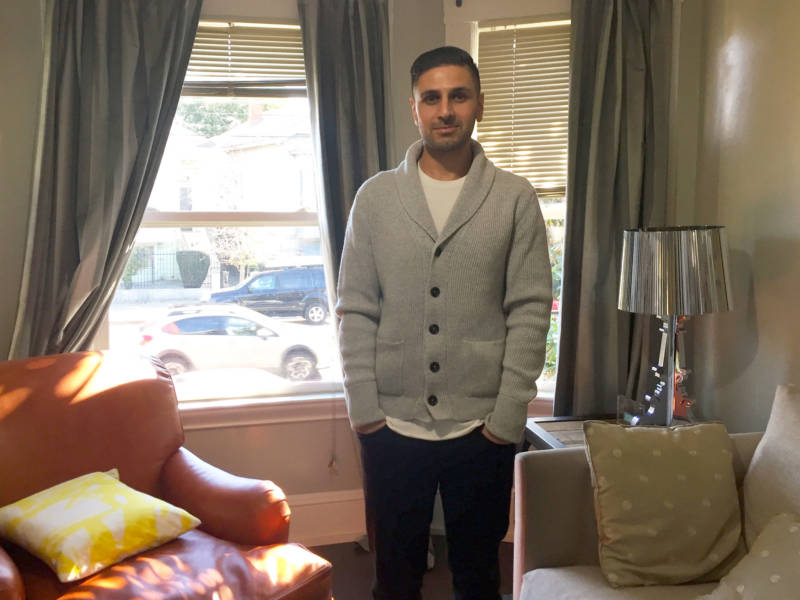In 2003, at age 18, Adnan Khan was involved in the robbery of a marijuana dealer. His accomplice stabbed and killed the man in the process.
Under California’s felony murder rule, Khan was held equally responsible for the killing. He was convicted of felony murder, and got a sentence of 25 years to life.
Khan spent nearly half of his life behind bars, the last four years in San Quentin State Prison in Marin County.
“Sixteen years ago, I participated in and committed a robbery. And I was absolutely wrong for that,” Khan said. “Unfortunately, the man that I was with stabbed and killed the young man. And my intentions were not to kill anyone.”
Then, something changed on Jan. 1. That’s when Senate Bill 1437, co-authored by state Sen. Nancy Skinner, a Democrat, and Assemblyman Joel Anderson, a Republican, took effect. The bill changed the law that allowed prosecutors to lock up Khan for a murder he didn’t actually commit.
Khan’s murder conviction was overturned last week.

“This law changes a centuries-old law in California known as the felony murder rule,” said Kate Chatfield, policy director at Re:store Justice, a criminal justice reform organization Khan co-founded while in prison.
Chatfield is also Khan’s lawyer.
“Under the felony murder rule, all accomplices to certain felonies including, most commonly, robbery and burglary, can be charged and convicted of a first-degree murder when an accomplice kills another person, or when a death occurs,” she said.
On Jan. 18, Khan went to court and was resentenced to three years for the Antioch robbery. He has already served five times that amount, and was released. He will no longer have a murder charge on his record.
Khan is the first person to be released from prison under SB 1437. Prior to the bipartisan bill, state law allowed people who participated in crimes that led to a death — even if they did not assist in the killing — to be convicted of felony murder.

